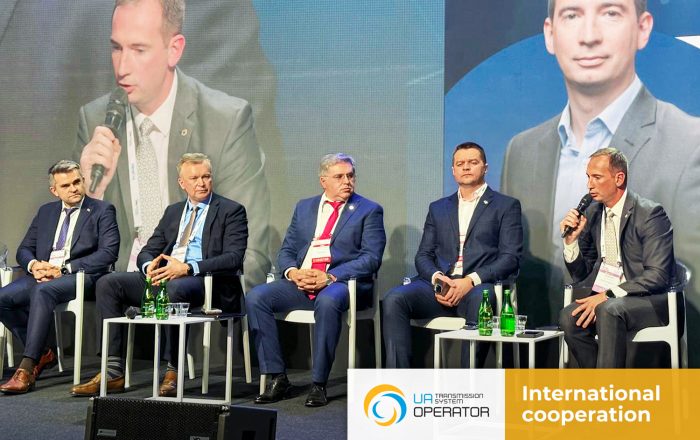Resilience to challenges, system redesign, operational efficiency, and decarbonization are the key areas of focus for the Gas TSO of Ukraine. These issues were discussed by General Director Dmytro Lyppa during his speech at the panel discussion titled “Main areas and challenges of restoring the energy system of Ukraine” at the ReBuild Ukraine conference on November 14 in Warsaw.
In the framework of international cooperation, GTSOU is increasing gas transmission capacity at interconnection points with the European countries and developing diversified delivery routes for “blue flame gas” to strengthen the energy security and sustainability of the European Union. Specifically, GTSOU has joined the “Vertical Corridor” initiative, which connects the South of the continent with the North through the “Trans-Balkan Corridor”, along with other European GTS operators. The planned firm capacity from April 1, 2025 is expected to be 2.5 million cubic meters, increasing to over 10 million cubic meters by April 1, 2026.
“We are continuing our active and fruitful work with our European partners to enhance the continent’s energy security. I am confident that Ukraine’s contribution to this strategically significant area will increase the EU’s resilience to challenges and energy independence,-” emphasized Dmytro Lyppa, General Director of the Gas TSO of Ukraine.
On the domestic market, GTSOU is closely cooperating with distribution system operators to determine and ensure optimal conditions for connecting biomethane plants and is developing a hydrogen route to the EU in accordance with the “green transition”.
As a reminder, a two-day conference titled “Sustainable recovery and investment support: opportunities for rebuilding the energy sector of Ukraine” was held as part of the traditional international event ReBuild Ukraine with the support of the Ministry of Energy of Ukraine. The conference was attended by representatives from Ukrainian and foreign authorities and businesses to discuss and resolve issues related to the restoration of Ukraine’s energy infrastructure, energy security, decentralization of energy generation, development of RES (renewable energy sources), as well as outlining plans for the future of Ukraine as the energy hub of Europe.
